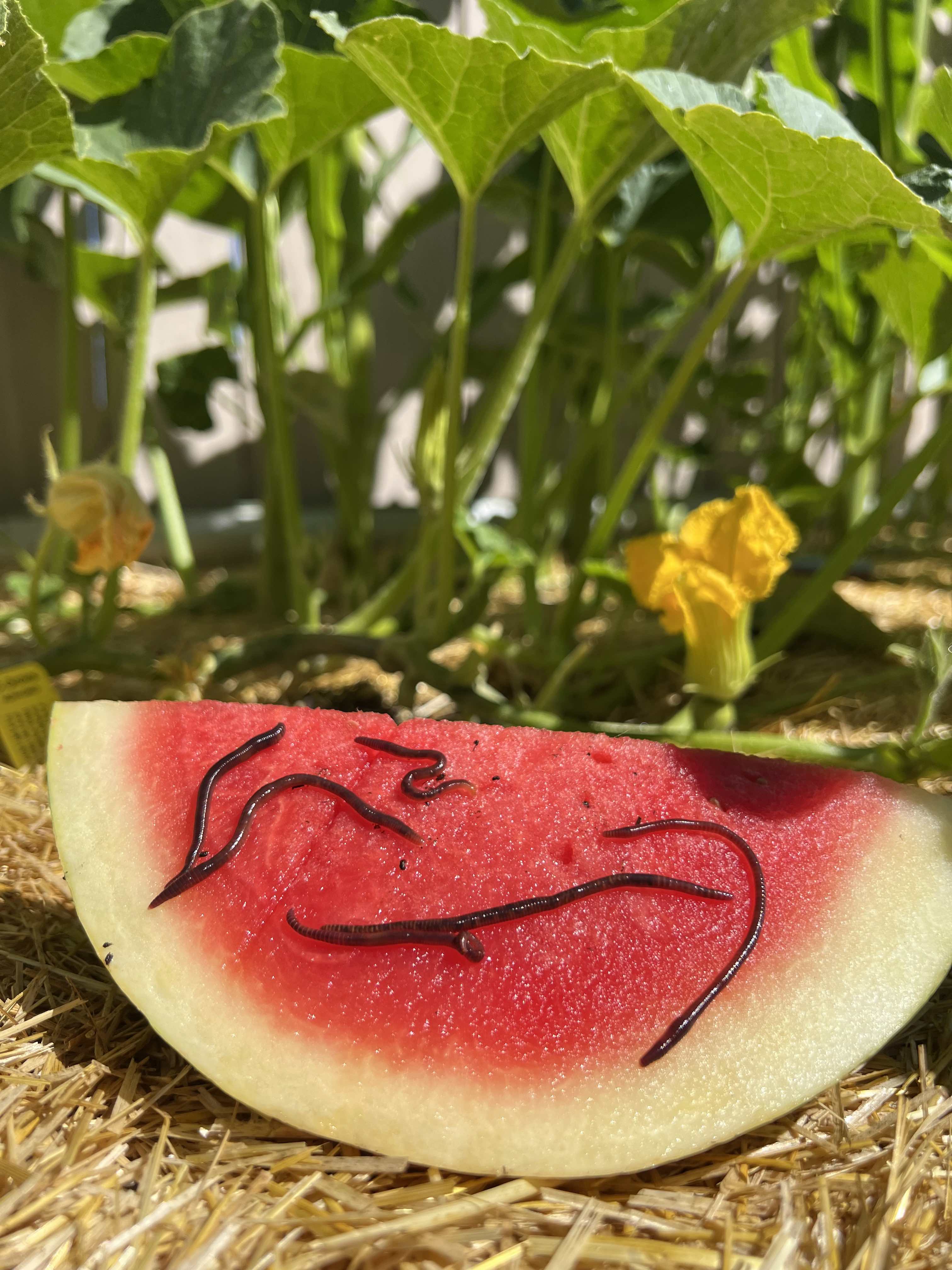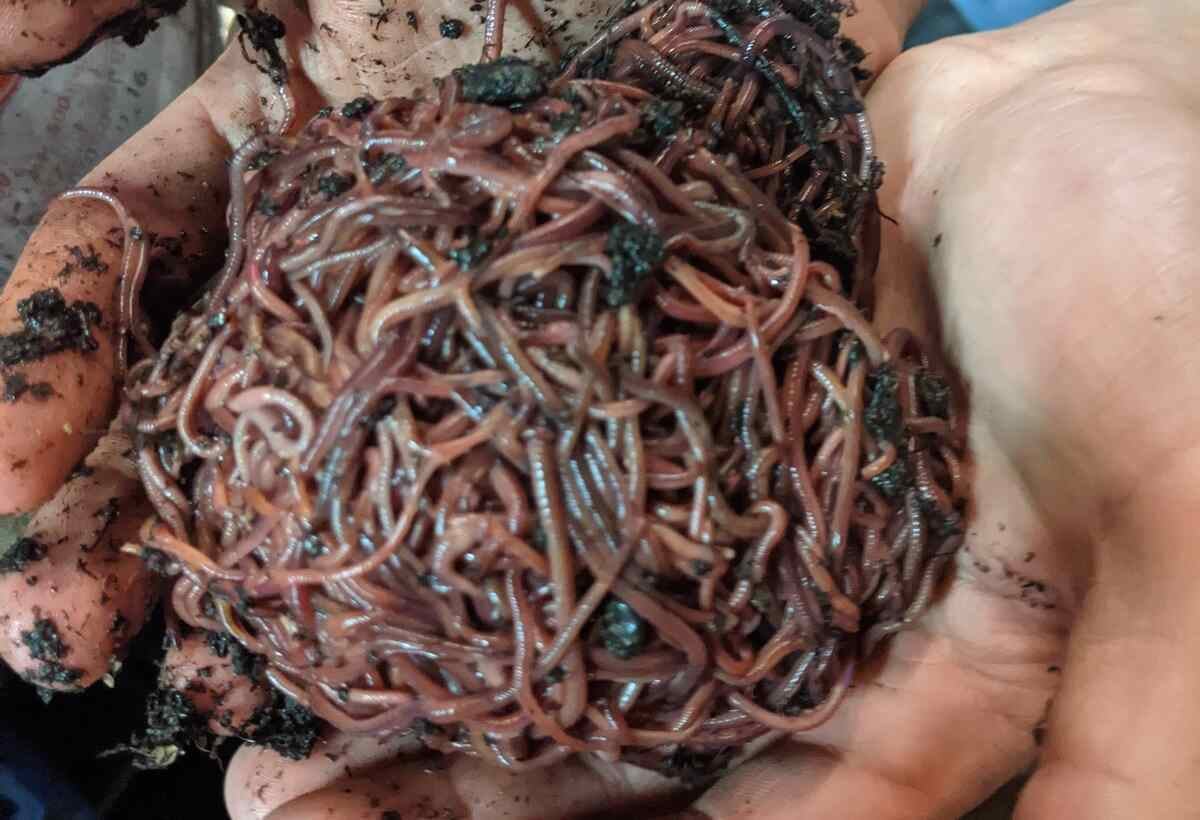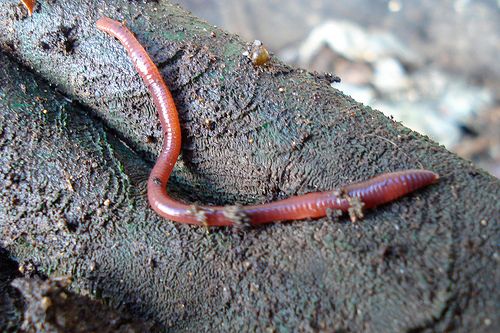Purchase Red Wiggler Worms - Perfect for Composting and Horticulture
Purchase Red Wiggler Worms - Perfect for Composting and Horticulture
Blog Article
Red Wiggler Worms Demystified: Unlocking the Keys of Vermiculture for Greener Living and Nutrient-Rich Dirt
In the world of sustainable practices for improving soil top quality and advertising eco-conscious living, red wiggler worms play a crucial yet frequently forgotten duty. Red Wiggler Worms. Recognizing the complexities of caring for these worms, maximizing their atmosphere, and harnessing their castings can lead to a greener lifestyle and much healthier dirt for plants to flourish.
The Role of Red Wiggler Worms
Red Wiggler worms play a crucial function in composting systems by effectively breaking down raw material into nutrient-rich castings. These voracious eaters take in a variety of organic materials, such as kitchen scraps, lawn waste, and paper items. As they feed, the worms' digestion processes damage down the organic issue into a penalty, dark, and nutrient-dense product called worm spreadings or vermicompost.
The spreadings generated by Red Wiggler worms are highly helpful for soil health and wellness and plant growth. They are abundant in necessary nutrients like phosphorus, potassium, and nitrogen, which are crucial for sustaining healthy and balanced plant growth. Additionally, worm castings have advantageous microbes and enzymes that assist boost dirt framework, boost water retention, and boost nutrient uptake by plants.
Benefits of Vermicomposting

It improves soil structure, improves soil oygenation, and enhances dirt wetness retention. Vermicompost additionally enriches the soil with crucial nutrients like phosphorus, nitrogen, and potassium, promoting plant growth and total soil fertility.
Furthermore, vermicomposting assistances sustainable horticulture techniques by giving a all-natural and chemical-free choice to synthetic plant foods. Red Wiggler Worms. This ecologically friendly approach not only improves the soil yet likewise helps in reducing dependence on unsafe chemicals, promoting a greener and more lasting method of horticulture
Setting Up a Worm Container
When establishing a worm container for vermicomposting, proper configuration is essential to make certain the success of the composting procedure. The initial step in establishing a worm container is picking an appropriate container. This can be a plastic container or wood box that supplies sufficient space for the worms to move and has proper drain holes to stop waterlogging. Next off, a bed linens material such as shredded paper, cardboard, or coconut coir ought to be contributed to the bin. This bed linens supplies a comfy environment for the worms and assists maintain moisture degrees.
After adding the bed linen, introduce the red wiggler worms to the container. The worms need to after that be provided with food scraps such as fruit and veggie peels, coffee grounds, and eggshells.
Routinely keep track of the moisture levels and temperature level in the worm container to guarantee ideal conditions for the worms. With proper arrangement and maintenance, the worm container will successfully transform organic waste right into nutrient-rich compost for your plants and garden.
Collecting Worm Spreadings
To successfully collect nutrient-rich worm spreadings from your vermicomposting system, a systematic harvesting technique is crucial. When it comes time to gather the worm spreadings, there are a couple of key steps to follow to guarantee a successful procedure. To start with, quit adding fresh food scraps to one side of the worm bin for a couple of weeks before gathering. This motivates the worms to migrate sideways with fresh bed linen and navigate to this website food, making it easier to dig the spreadings from the other side.

Troubleshooting Common Issues
Identifying and dealing with common difficulties that might arise throughout the vermicomposting process is critical for maintaining a productive and healthy worm container. Including excess food scraps can lead to an accumulation of dampness and acidity in the worm container, potentially hurting the worms. Another issue is unpleasant odors rising from the worm container.
In addition, if the worm populace is declining or the worms show up unhealthy, maybe because of ecological stress factors such as severe temperature levels or pH levels. Checking these elements and making necessary modifications is crucial for the well-being of the worms. By repairing these typical issues without delay, vermicomposters can guarantee a smooth and successful vermicomposting procedure while maintaining a growing worm populace.

Final Thought
In conclusion, red wiggler worms play an essential role in vermiculture by breaking down organic matter into nutrient-rich dirt. Setting up a worm bin is vital for effective vermiculture, and harvesting worm spreadings provides valuable garden compost for horticulture.
As they feed, the worms' digestive system procedures damage down the natural issue into a penalty, dark, and nutrient-dense product recognized as worm spreadings or vermicompost.
The castings produced by Red Wiggler worms are highly useful for dirt wellness and plant development. Adding excess food scraps can lead to a build-up of dampness and acidity in the worm container, potentially hurting the worms.In addition, if the worm populace is declining or the worms appear harmful, it could be due to ecological stress factors more info here such as severe temperature levels or pH levels. Establishing up a worm bin is necessary for effective vermiculture, and gathering worm spreadings supplies important garden compost for horticulture.
Report this page